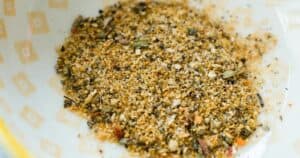Lemons are not just your average citrus fruit. They are a powerhouse of nutrients, offering numerous health benefits beyond their tart taste.
Whether you’re a foodie looking to add some zing to your recipes or someone hoping to improve their health, lemons are a versatile fruit that should be included in your daily diet.
In this article, we’ll explore everything you need to know about lemons, from their culinary uses to their potential health benefits, giving you a comprehensive guide to this vibrant fruit. So, let’s dive in!
The History and Origins of Lemons
The history and origins of lemons can be traced back to Assam, northern Myanmar, or China. Although no one knows which region was the first to grow this fruit, a genomic study suggests that lemons are a hybrid between bitter orange and citron.
The first culinary usage of the lemon began in Europe in the 15th century. In Genoa, Italy, the major cultivation of lemons started around this time.
Leaving Europe, lemons arrived in the New World in 1493. They then have made their way around the world ever since. DNA evidence shows that all citrus fruits can trace their roots to the southeast foothills of the Himalayas. The clustering of these areas, plus the genetic makeup of lemons, suggests that their initial discovery was accidental or naturally occurring.
The significance of lemons throughout history is much more than just a fruit. The citric acid, found within the pulp and juice, was used as an antiseptic, a disinfectant, and even as a medicine to combat scurvy. This was due to the high levels of vitamin C in lemons, which is still relevant today.
Lemons are now ubiquitous in the culinary world, providing a unique sourness or acidity. Beyond that, the essential oil made from lemon and its peels has also taken on many industrial uses like cleaning products, perfumes, and even stain removers.
As more and more people choose to invest in their health, the popularity of lemons, and their myriad uses, has skyrocketed.
Today, nearly 120 varieties of lemons exist, being grown commercially or in personal orchards all around the globe. Each array might have a slightly different appearance or taste due to variations in growing conditions, soil composition, or hybrid mixtures.
Whether you squeeze it on top of food, use it in cleaning products, or make a refreshing summer beverage, the lemon is a versatile and beloved fruit that has stood the test of time.
Nutritional Value of Lemons: What Makes Them So Healthy?
Lemons are a superfood powerhouse! They contain high levels of vitamin C, fiber, and beneficial plant compounds, making them one of the healthiest fruits. Vitamin C is excellent for supporting your immunity, fighting off infections, and promoting wound healing.
Plus, you’ll get bone-strengthening calcium and mood-boosting nutrients from these zesty fruits. A single lemon contains just 18.8 calories, so you can feel good about adding them to your diet.
Now, let’s dive a bit deeper into the incredible nutritional value of lemons.
High in Vitamin C
Lemons are one of the best sources of vitamin C, which has countless benefits for your body. This essential vitamin acts as an antioxidant, helping to protect your cells from damage caused by free radicals.
It also plays a vital role in maintaining healthy skin, tendons, ligaments, and blood vessels. Just one lemon provides about 31 mg of vitamin C, over 50% of the recommended daily intake for adults.
Rich in Fiber
Lemons are also an excellent source of dietary fiber, with one lemon containing 1.8 grams of fiber. Fiber is essential for digestive health, helping to prevent constipation, diarrhea, and other common gastrointestinal issues.
Plus, high-fiber foods can help you feel fuller for longer, aiding in weight loss efforts.
Packed with Plant Compounds
Lemons are incredibly rich in plant compounds, which have been shown to provide numerous health benefits. One of these compounds is hesperidin, which has powerful antioxidant and anti-inflammatory effects.
Other compounds found in lemons, such as limonene and citric acid, may help to prevent cancer and improve heart health.
Culinary Uses of Lemons: Juicing, Zesting, and More
Juicing
Lemon juice is a vibrant ingredient that adds a tangy and acidic flavor to numerous dishes. This fruit’s acidic nature means it can serve as a fantastic natural tenderizer, breaking down proteins to make meats more tender. Here are a few dishes that you can create using lemon juice:
- Lemon chicken: create a marinade of lemon juice, garlic, and olive oil and marinate the chicken for a few hours before cooking. This’ll give your chicken a robust and tangy flavor.
- Lemon rice: add lemon juice after cooking rice to give it a bright flavor.
- Lemonade: mix freshly squeezed lemon juice with sugar, water, and ice for a refreshing drink.
Zesting
Zesting is the process of grating the lemon peel for its taste. The lemon zest has an intense flavor that can add an extra zing to your dishes. Here are a few dishs that you can prepare using lemon zest:
- Lemon zest chicken: Rub the chicken with lemon zest, olive oil, salt, and pepper for a citrus-flavored chicken dish full of freshness.
- Lemon zest pasta: add lemon zest and a bit of butter or olive oil to your pasta and toss for a vigorously-flavored dish.
- Lemon zest cakes: Add lemon to your cake recipe to add a unique fresh flavor twist.
Other Uses
Apart from juicing and zesting, lemons have many other culinary uses. Lemon slices make great garnishes, adding both beauty and zest to dishes. They also help in preventing fruits like apples, bananas, and avocados from oxidizing when added to them.
Besides, you can use lemon juice to clean and deodorize your kitchen and home. Finally, lemon juice can help reduce the appearance of dark spots on the skin, making it an excellent culinary ingredient and skincare agent.
Health Benefits of Lemons: Boosting Immunity, Aiding Digestion, and More
Lemons are a powerhouse of nutrients that provide numerous health benefits. With a high amount of vitamin C, soluble fiber, and plant compounds, lemons are known for their immunity-boosting properties.
Vitamin C is crucial in strengthening the immune system, which protects the body against infections and diseases. Drinking lemon water or adding lemon juice to your diet can help prevent illnesses and keep you healthy.
Apart from boosting immunity, lemons can aid in digestion as well. The soluble fiber in lemons helps regulate bowel movements, preventing constipation and promoting digestive health.
Drinking warm lemon water in the morning on an empty stomach can stimulate the digestive system and flush out toxins from the body. Lemon juice also acts as a natural diuretic, helps detoxify the liver, and aids in the absorption of nutrients.
Lemons are also known for their weight loss benefits. The pectin fiber in lemons can help you feel full for longer, reducing your caloric intake and aiding in weight loss. Additionally, lemons have a low glycemic index, meaning they do not cause a significant rise in blood sugar levels. This makes them an ideal fruit for people with diabetes.
Research also suggests that lemons may help prevent kidney stones. The citric acid in lemons can bind to calcium in the urine, preventing the formation of rocks. Consuming lemon juice or water can increase urine volume and help prevent kidney stone formation.
Potential Risks and Side Effects of Lemon Consumption
Lemon consumption can have potential risks and side effects on our bodies. The high acid content of lemon juice can cause discomfort for people with mouth ulcers and worsen symptoms of GERD. Overindulging in lemon juice may also lead to tooth erosion and migraines.
Additionally, psoralens found in lemons can interact with sunlight, increasing the risk of sunburn, especially for those with lighter skin.
However, when consumed in moderation, lemons have numerous health benefits. They offer immune support, aid digestion, and reduce the risk of kidney stones. Additionally, the antioxidants found in lemon juice may help reduce inflammation and promote healthy aging.
On the other hand, improper storage of lemons may lead to bacterial growth and pesticide exposure. Therefore, washing lemons thoroughly before consumption and storing them in a cool and dry place is important.
How to Select and Store Lemons: Tips for Maximum Freshness
When it comes to selecting fresh lemons, don’t settle for less! To get the best lemons, you want them to be bright yellow and not too mature, with no bruises, wrinkles, soft spots, or moldy areas.
Why? Because ripe lemons are dry and less juicy, damaged ones will likely spoil more quickly.
To store your lemons for maximum freshness, keep them separate from other fruits and vegetables. This is because lemons produce a natural gas called ethylene that can cause other produce to ripen faster, resulting in them spoiling prematurely. So, it’s best to store lemons on their own.
Keeping citrus fruits in high-humidity environments helps prevent them from drying out, and lemons are no exception. A great way to achieve this is by keeping your lemons in a water bowl in the fridge. This method also helps preserve their flavor and texture, so they’re always fresh and delicious.
Freezing is an option if you want to keep your lemons on hand for an extended period. To freeze your lemons, place them in a food-safe plastic bag and pop them in the freezer. They’ll last up to four months this way, which makes it easy to use them whenever you need them for a recipe.
Lemons Around the World: Use and Significance in Different Cultures
Lemons hold practical significance in numerous cultures worldwide. In ancient Rome, Egypt, and China, lemons symbolized wealth and luxury. The elite households would plant lemon trees and display them as a status symbol.
In the US, the production of lemons holds great importance for the growth of society and is often associated with the promise of financial success.
Lemons are used in different ways throughout various cultures, from culinary purposes to medicinal ones. In India, lemons are a significant ingredient in Ayurveda, traditional medicine.
Lemons are also a natural remedy to treat fever and cold in India. In Morocco, lemons are used to make preserved lemons, a staple ingredient in many traditional Moroccan dishes.
Apart from their culinary use, lemons hold major cultural significance worldwide. In Chinese culture, lemon is said to purify properties to ward off negative energy, while in Vietnam, lemon is used to bless traditional offerings.
Additionally, in Jewish culture, symbolic meanings are attached to the consumption of lemon during the Feast of Tabernacles, representing the Jewish people’s journey through the wilderness.
Lemon Substitutes
Lemon substitutes are an excellent solution for those allergic to lemon or who don’t have any at home.
- Lime juice is the ultimate choice for a replacement because it has a taste profile similar to lemons and can be used in a one-to-one ratio.
- Orange juice can be an equal replacement for those looking for a sweeter option. But what other options are available?
- White wine vinegar, white vinegar, grapefruit juice, and citric acid substitutes for lemon juice. Each alternative can be used depending on the recipe’s requirements.
- Red wine vinegar is an excellent replacement for marinades and dressings using lemon juice. It adds a slight tang to the recipe, similar to a lemon’s acidic taste.
- Citric acid has been used in cooking and baking for years, especially in candy-making, which adds a tart flavor to sweets.
Choosing a suitable substitute for a particular recipe is essential when cooking or baking. Lemon extract can be used for desserts but not in savory dishes or salad dressings, as its taste differs from the actual fruit.
As you can see, with so many substitutes for lemon juice, you can always enjoy a recipe without compromising taste or texture, even if lemons are unavailable.
Substitutes can be used as an alternative to lemon juice, but you should also consider the recipe’s chemistry.





